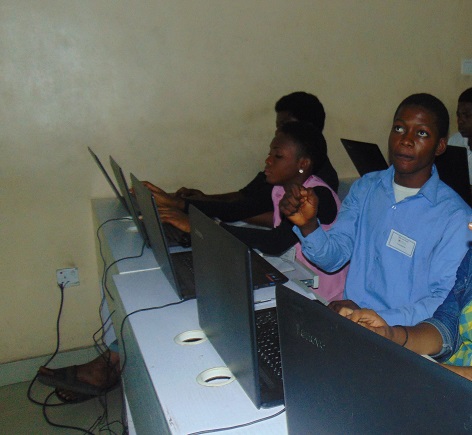As the world commemorates the 2019 Safer Internet Day, Paradigm Initiative has urged Nigerians to adopt safer internet practices. The pan-African digital rights and inclusion advocacy organisation made this call at a media parley held Monday, February 4, at its office in Lagos.
According to Sodiq Alabi, the organisation’s Communications Officer, “The Safer Internet Day is a day set aside to raise awareness of emerging online issues, and leverage this to help improve the safety of internet users, especially children and youth. Paradigm Initiative has been empowering youth with digital skills in Nigeria for over a decade, and we have always been conscious of the need to train internet users on the responsible use of the tool.”
The organisation has embarked on a digital literacy campaign targeted at young people in Abia, Lagos and Kano, the three states where it currently runs training centres dedicated to information and communication technology skills acquisition among underserved youth.
The digital literacy campaign includes classes on digital security for youth, media outreach and roadshows. The campaign is aimed at encouraging internet users in the country to make positive use of the Internet.
According to Tosin Abolaji, Paradigm Initiative Digital Inclusion Program Manager, “This is a crucial time to embark on this campaign as Nigeria heads to the polls in a matter of days. Young people are especially impressionable. We want them to recognize that issues of false news, hate speech and cyber harassment are phenomena that can negatively affect peace and security, but also the integrity of an election. We believe internet users education is one of the ways to combat these phenomena.”
“Our message to youth is to be more discerning in how they consume content on social media and other platforms. That something is online does not make it true. We encourage all users to acquire fact-checking skills so they don’t fall prey to misinformation campaigns and they don’t themselves unwittingly spread misinformation,” Abolaji added.


